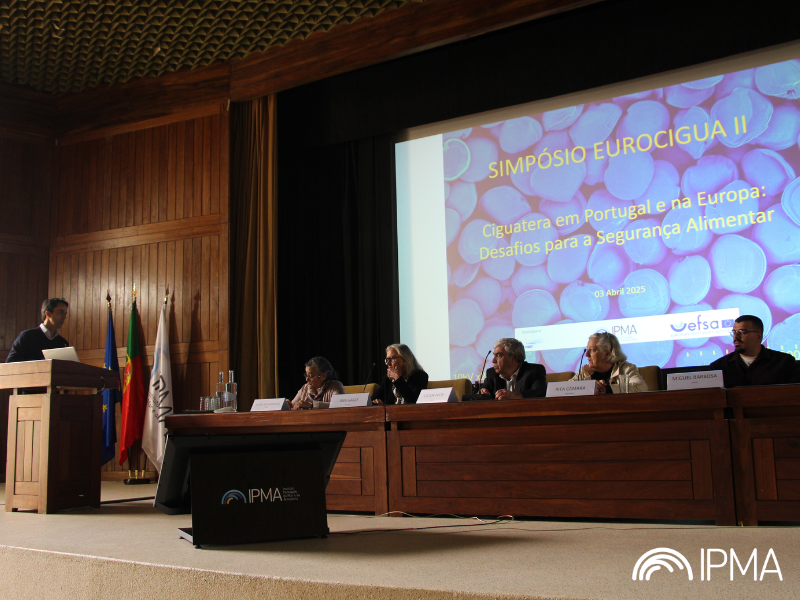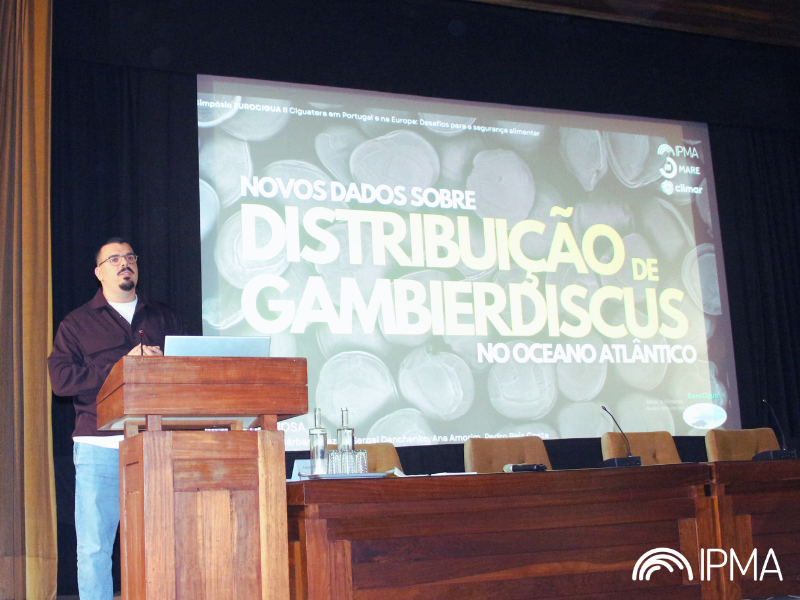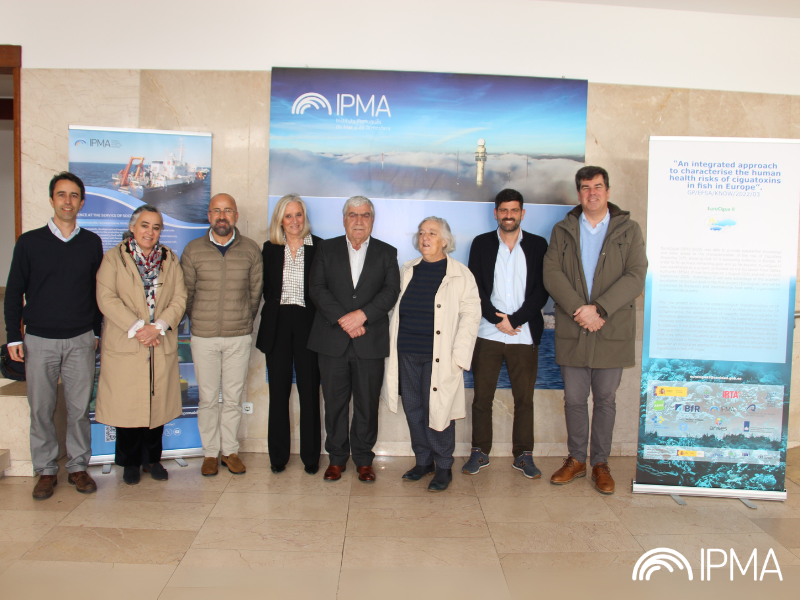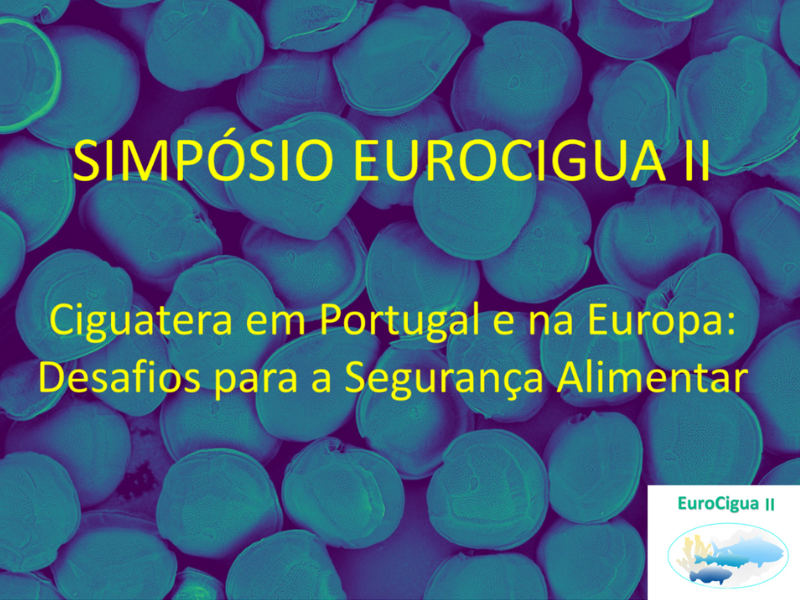EUROCIGUA II Symposium in Algés
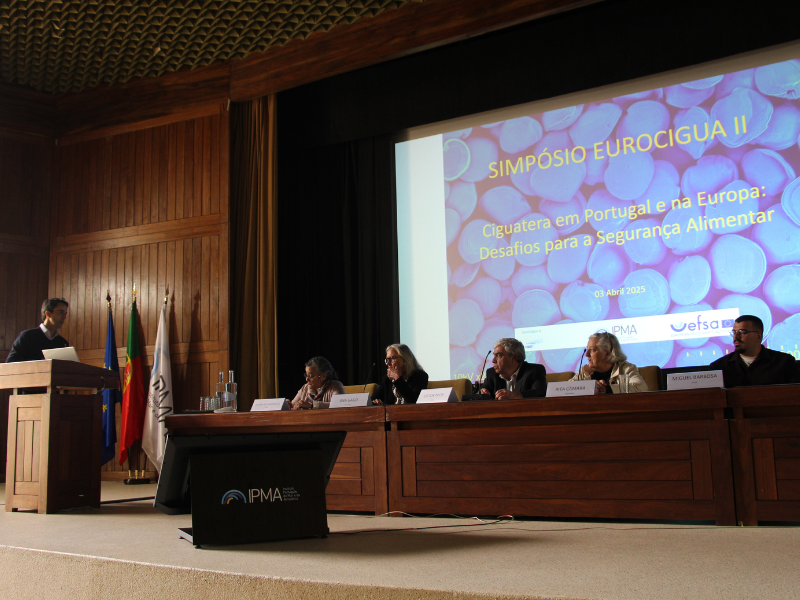 2025-04-04 (IPMA)
2025-04-04 (IPMA)
As part of the Eurocigua II project, co-financed by the European Food Safety Authority (EFSA), a symposium was held on April 3rd at the auditorium of the Portuguese Institute for Sea and Atmosphere (IPMA) in Algés. The event focused on the challenges to food safety posed by the emergence of ciguatera poisoning cases in Portugal, linked to the consumption of fish contaminated with ciguatoxins.
The event was opened by Ivone Figueiredo, Director of the Department of the Sea and Marine Resources at IPMA, and Filipa Melo de Vasconcelos, Deputy Inspector-General of the Food and Economic Safety Authority (ASAE). Vasconcelos highlighted EFSA's importance as a key organization for public health protection within the European Union and its role in ensuring that European consumers have access to safe, high-quality food. Also emphasized ASAE's role in regulating and monitoring food safety in Portugal, as well as in promoting quality and legality, with a direct impact on consumer protection, reinforcing the work of both institutions in investigating emerging threats like ciguatera.
Professor Ana Gago from the University of Vigo provided an overview of Eurocigua I and the current status of Eurocigua II, sharing the latest findings on ciguatoxin detection in fish collected throughout both projects. She placed special emphasis on fish caught in the Selvagens Islands, which showed some of the highest toxin levels. A. Gago also reported on toxin profiles determined via chromatography from Gambierdiscus biomass cultivated at IPMA, originating from strains isolated from Madeira and the Selvagens Islands.
PhD student Miguel Barbosa from IPMA/MARE/CIIMAR presented his work on optimizing the cultivation of Gambierdiscus and discussed the occurrence of various species identified through molecular techniques and microscopy. These species were found throughout the Atlantic Ocean, ranging from tropical regions such as São Tomé and Príncipe to the Azores.
Dr. Rita Câmara, a physician at Funchal Hospital, shared information on how ciguatera cases are distinguished from other clinical conditions, reporting eight outbreaks since 2007 and a total of 54 cases of poisoning.
Victor Prior, Director of the Department of Meteorology and Geophysics at IPMA, shared his insights into the climatic conditions of Madeira and spoke about the institute's investment in meteorological equipment for the Selvagens Islands.
With around fifty participants from IPMA, the University of Lisbon, the National Health Institute Dr. Ricardo Jorge, and ASAE, among other institutions, the initiative concluded with a roundtable discussion that was open to the public.
Imagens associadas

